Circus? Zoo? Criticism and praise for WEF 2024
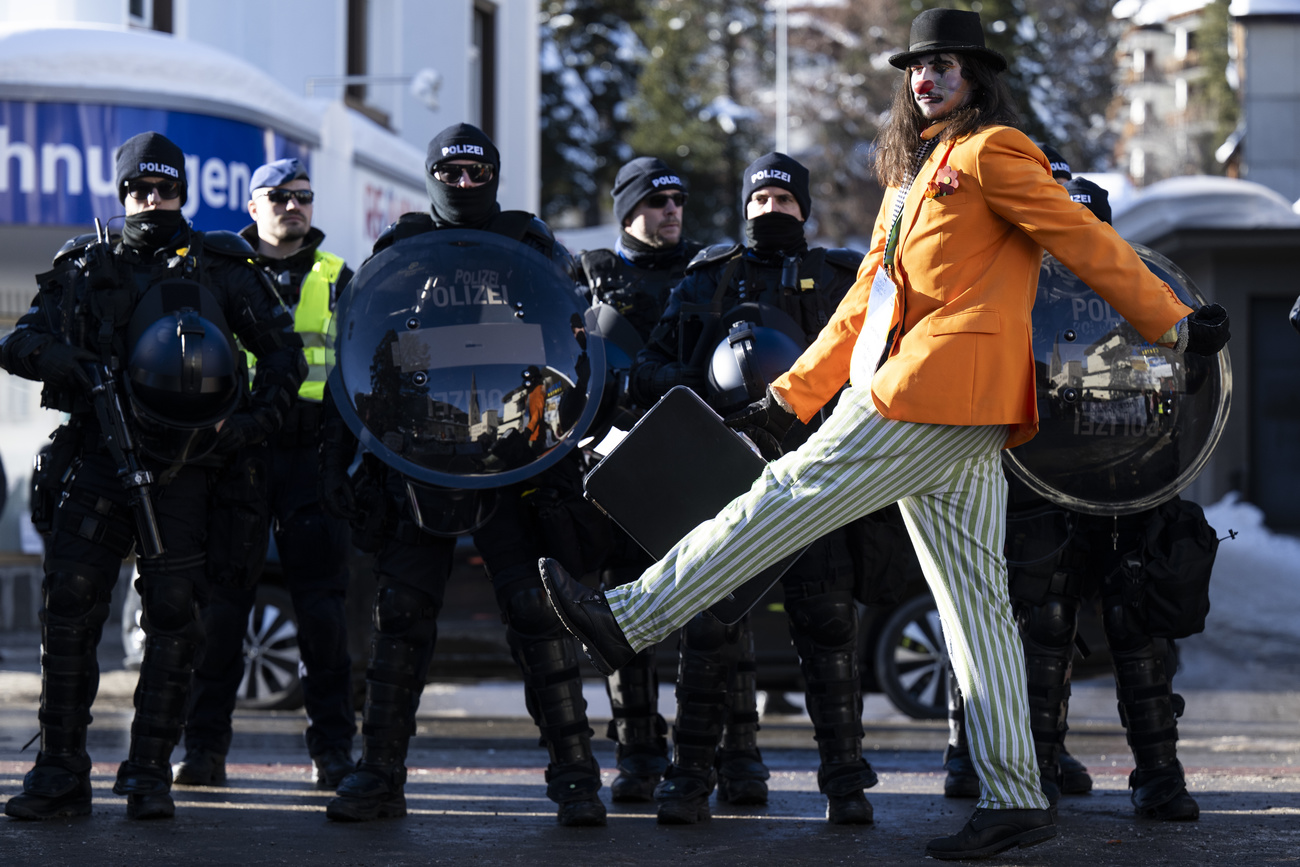
As the jets, limos and AI bros leave the Swiss mountain resort of Davos, we look at the main talking points – and some memorable images – from this year’s annual meeting of the World Economic Forum (WEF).
With the political dust settling from a “particularly frenetic summit”, as the Financial Times put it, Swiss newspapers agree that WEF 2024 was a good result for the hosts – but the government shouldn’t get carried away with the back-slapping.
“Switzerland emerges stronger from WEF, the government is more divided,” was the headline of the editorialExternal link in the Neue Zürcher Zeitung (NZZ).
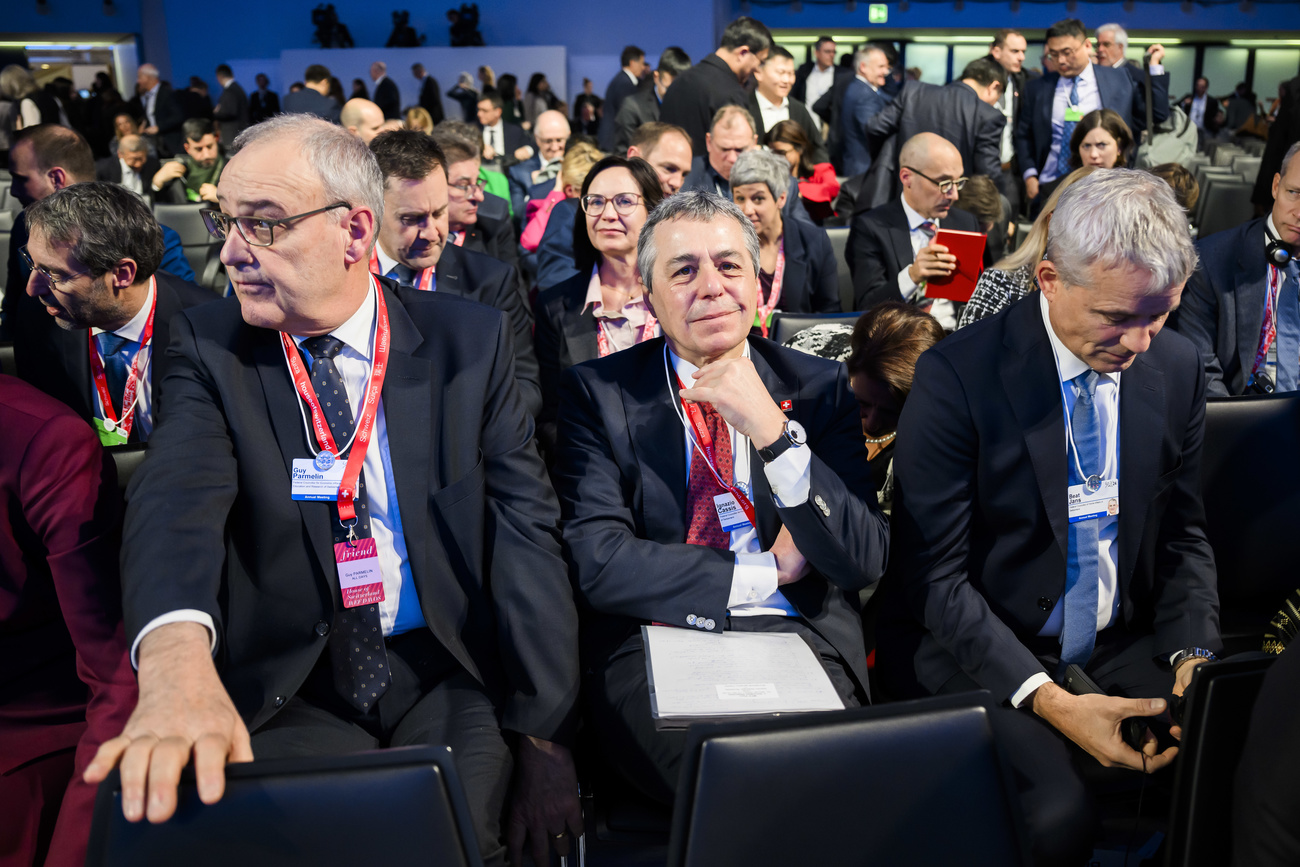
“The World Economic Forum is over. And the whole world is talking about a possible peace in Ukraine – and about Switzerland,” it said. The country’s offer to organise a peace summit for Ukraine “has earned the Swiss government a great deal of goodwill”.
International criticism, for example of neutral Switzerland’s refusal to allow the re-export of arms to Ukraine or to freeze Russian assets, “has been silenced for the time being”, the NZZ said. “The perception of Switzerland has shifted in the past week – from alleged war profiteer to potential peace provider.”
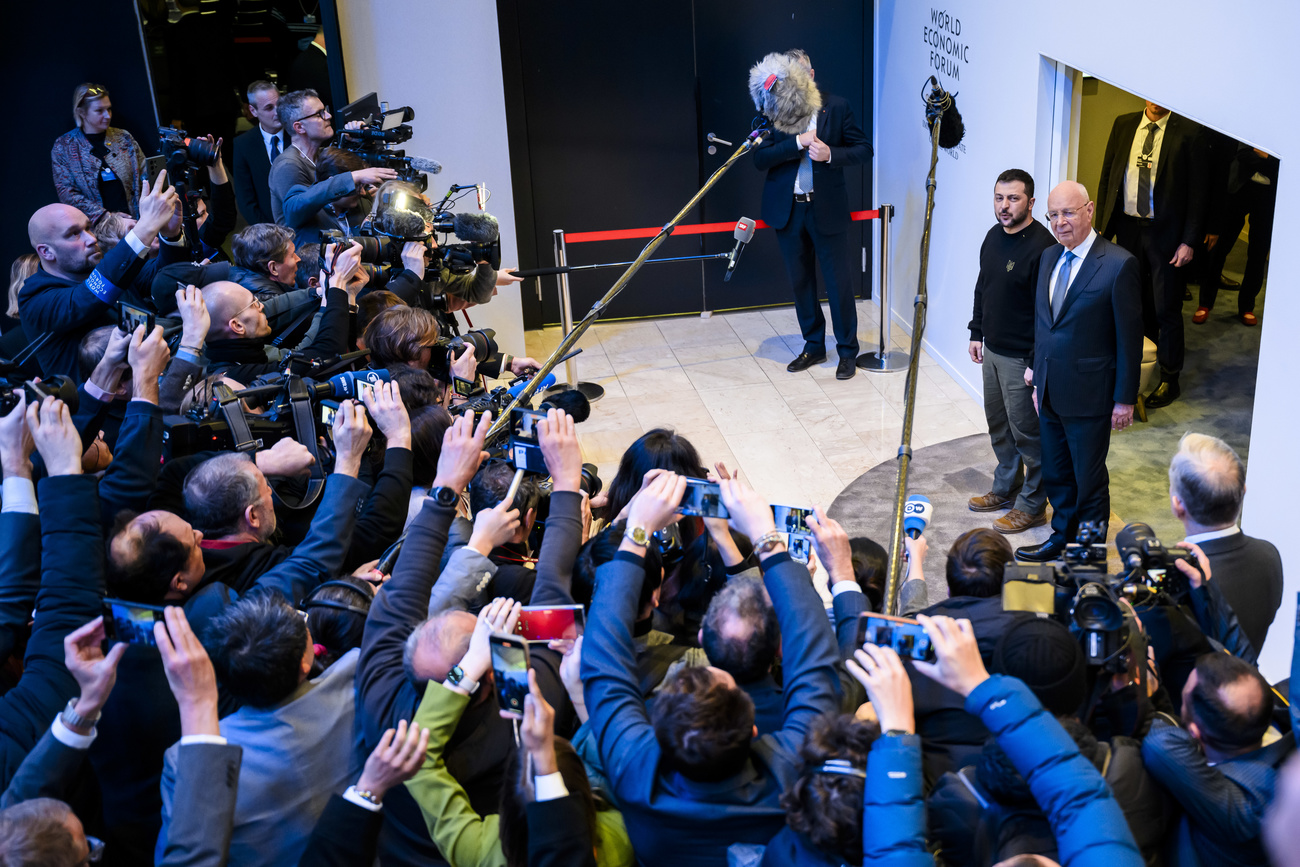
That’s the good news, it declared, but it warned that the less good news may be yet to come. “Behind the self-confident charm offensive, disagreements could also be observed in Davos,” it said. “For example, in the European dossier, whose priority was downgraded somewhat owing to the peace efforts.”
The NZZ noted that while the new “double act” of Defence Minister Viola Amherd, who also holds the rotating Swiss presidency this year, and Foreign Minister Ignazio Cassis “tried to spread euphoria here too”, the two government ministers from the right-wing Swiss People’s Party, Albert Rösti and Guy Parmelin, continued to keep their distance.
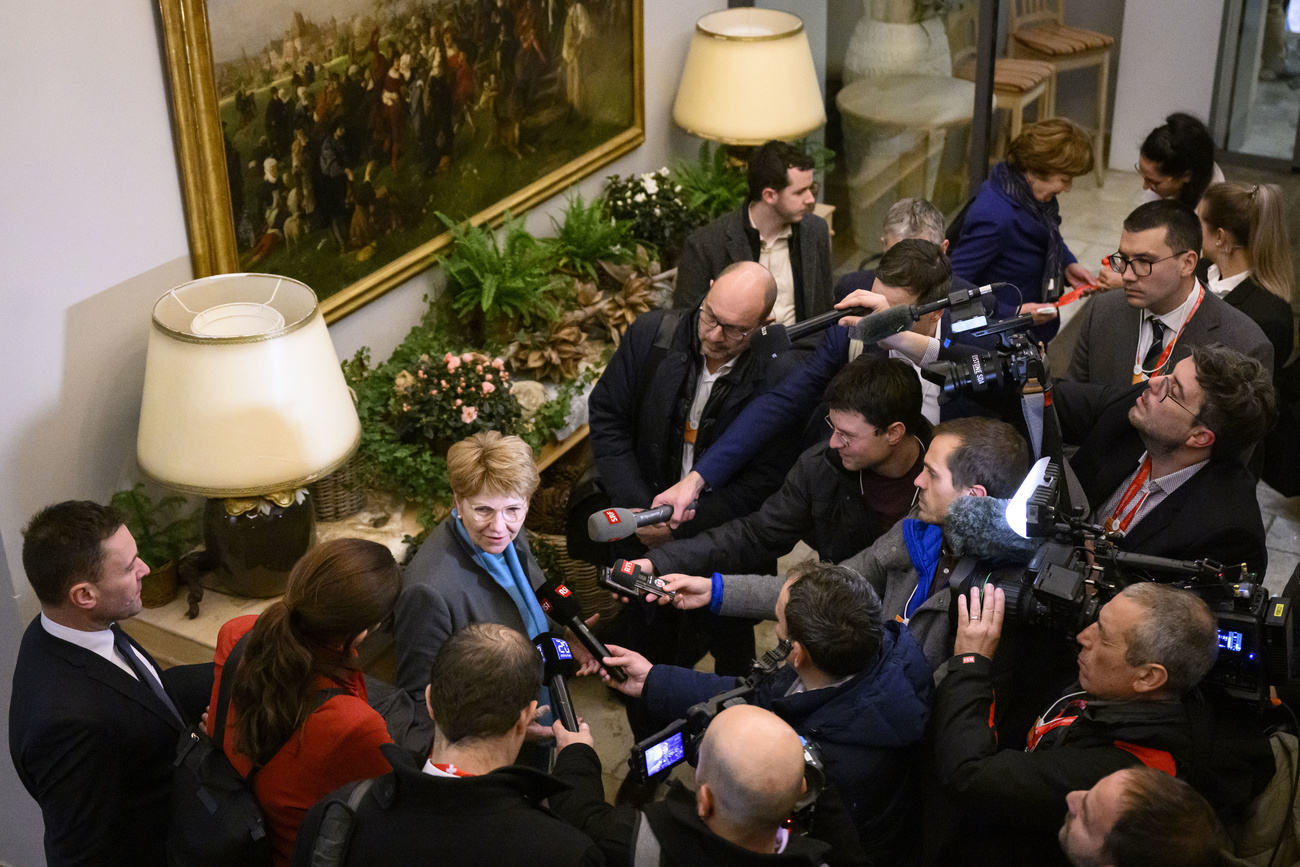
More
From Amherd to Zelensky: 48 hectic hours in the life of the Swiss president
The paper also noted that Finance Minister Karin Keller-Sutter, from the centre-right Radical-Liberal Party, didn’t hold a single media conference in Davos. “This isn’t necessarily a bad thing, but it does leave questions unanswered: is she becoming a loner as head of the cross-sectional department which always has to deal with everyone?”
The NZZ said Keller-Sutter had reportedly opposed an aid package for Ukraine proposed by Cassis. “How is the government supposed to explain to its own population that it has no money for a 13th month of pension [on which the Swiss will vote on March 3] but enough to help the Ukrainians?” the paper asked.
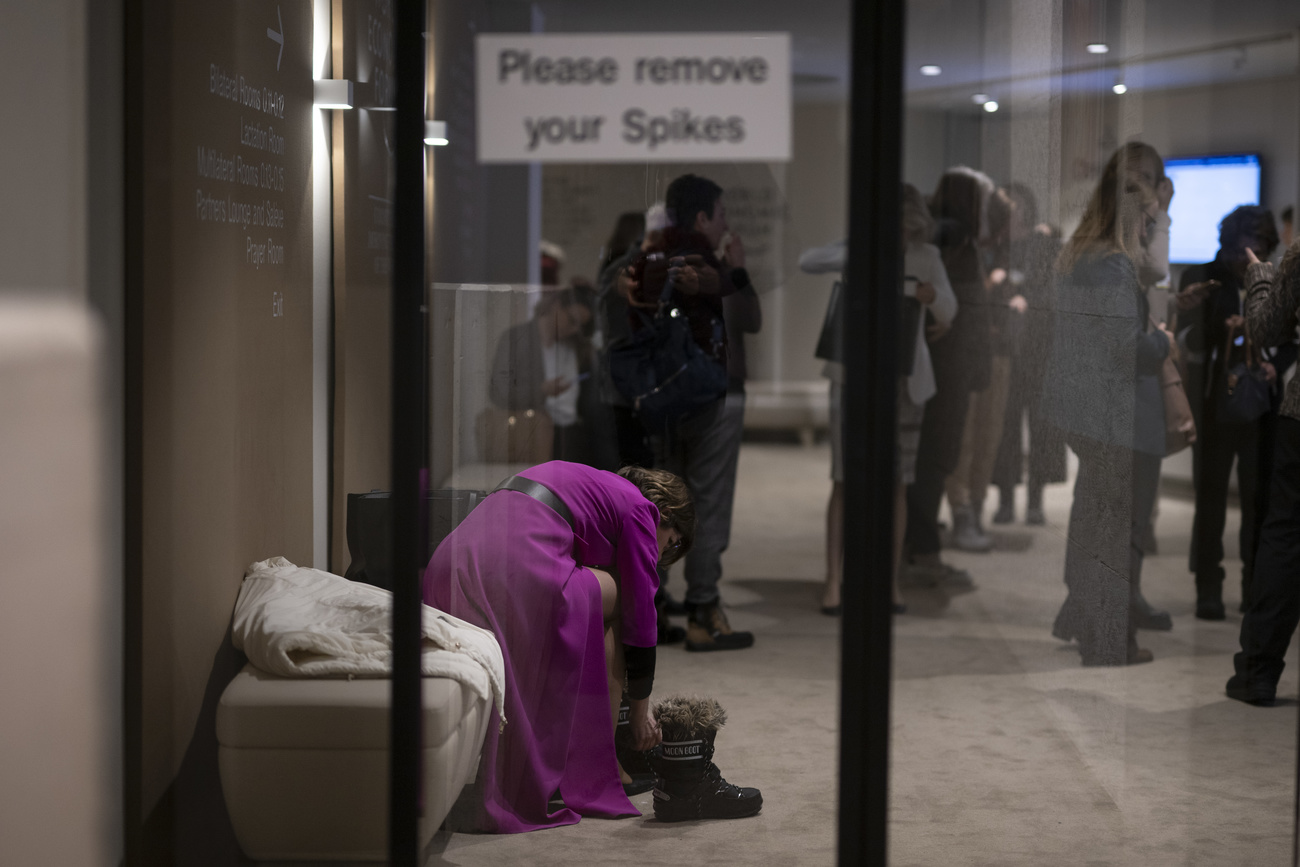
‘Unlikely success’
“Glorious sunshine, snow, bitter cold and endless traffic jams – the 2024 edition of the World Economic Forum looks like a classic,” reckoned the Tribune de Genève’s man in Davos.
Under the headline “The unlikely success of the WEF”, he explainedExternal link why the event remained highly attractive, despite criticism and the boom of virtual conferences.
“I’ve rarely seen so much excitement on the first official day,” he raved. “Clearly, the event continues to be a success, even if the geopolitical context is sombre and makes it difficult to interpret what is really being said.” In his view, the WEF, which was predicted to decline given the proliferation of online conferences, “is benefiting from a geopolitical situation in which governments, business and civil society feel the need to meet”.
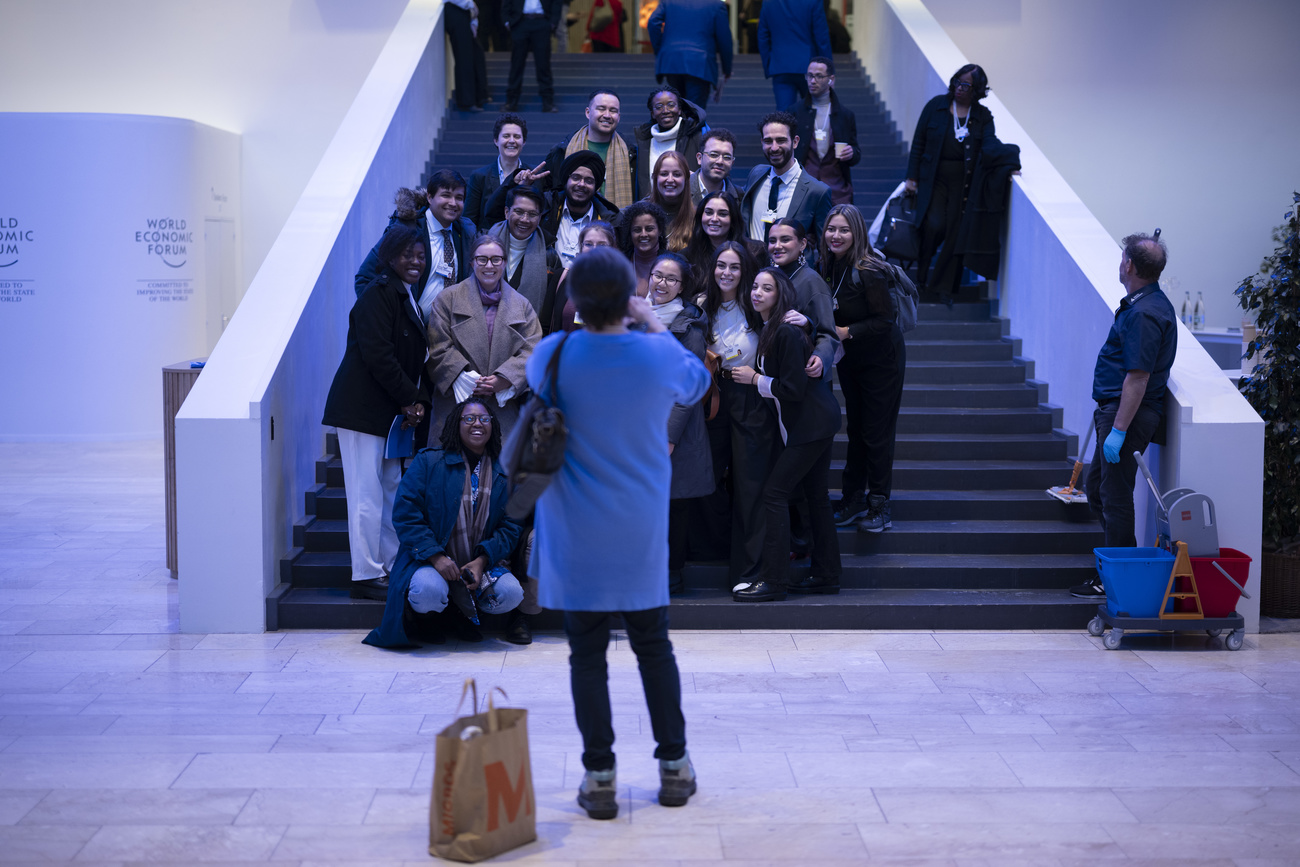
Indeed, this was the first forum since Covid-19 to have attracted crowds on a pre-pandemic level.
“While it remains a place where the elite over-consume and travel in obscene, environmentally unfriendly limousines, the WEF has become the place where the COPs on climate change are extended. It has been able to adapt to the world. Does it influence it? Not sure, but it remains an essential platform for exchange.”
‘It’s a zoo’
Or does it? The Tages-Anzeiger in Zurich agreed that this year’s summit was once again much more strongly characterised by politics than in previous years, but in its view the WEF fulfilled expectations only to a limited extent. “The topics on stage were too varied,” it saidExternal link.
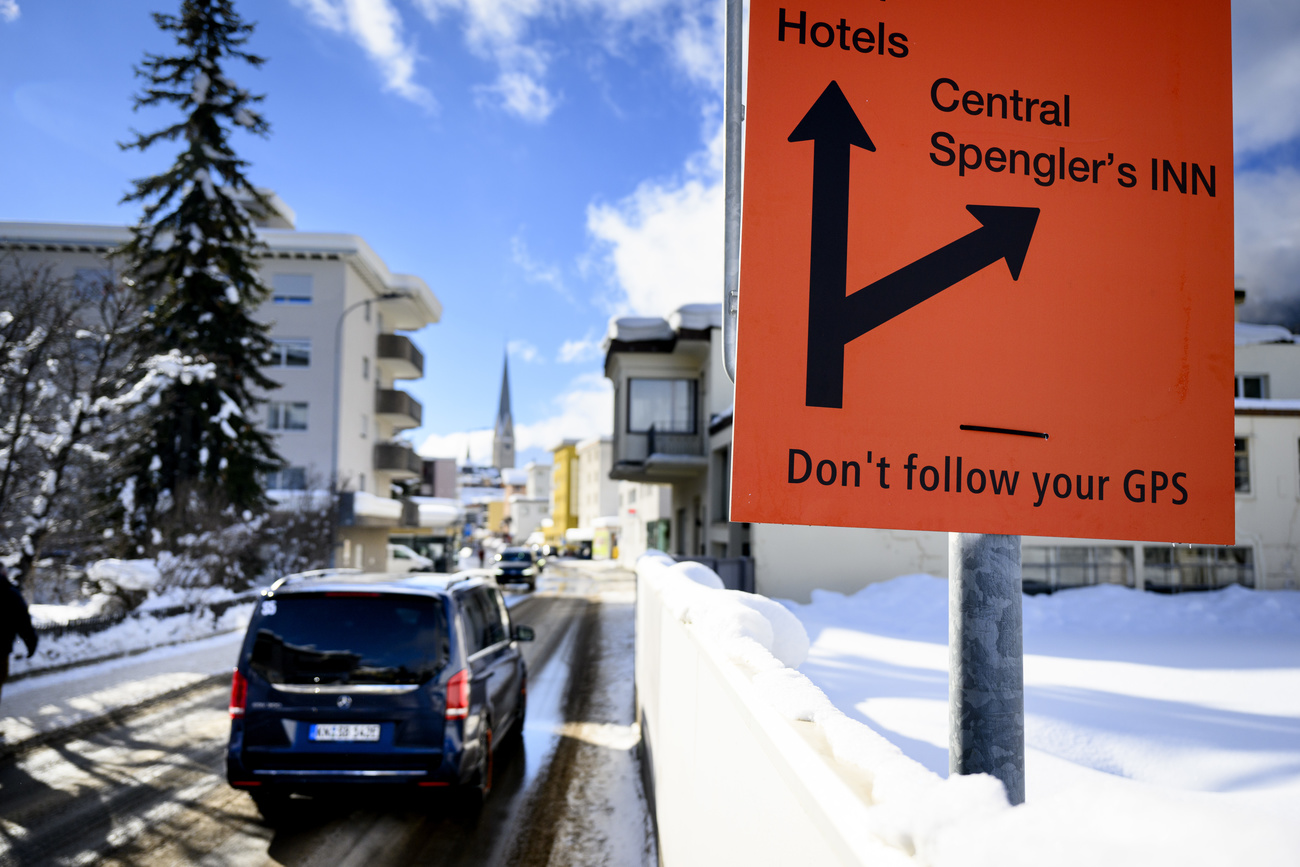
The paper listed the many leaders who used their speeches to further their agendas: Ukrainian President Volodymyr Zelensky put Ukraine on the agenda early on, Argentinian President Javier Milei used his first trip abroad to condemn socialism and state intervention, Israeli President Isaac Herzog called Iran the “empire of evil”, and Iranian Foreign Minister Hossein Amir-Abdollahian denied his country had ever sold drones to Russia and said that as long as Israel did not stop its “war crimes”, everyone would suffer.
“It’s doubtful whether such appearances correspond to the motto of the forum: ‘Rebuilding Trust’,” the Tages-Anzeiger said. “However, this is difficult without dialogue. And in Davos there is no dialogue. The heads of state and government usually talk one after the other rather than with each other.”
It’s clear, the paper continued, that there must be room for different views and positions in Davos. “It’s equally clear that the WEF can only provide the platform and that it’s up to the participants to use it or not. But agenda hopping makes the forum arbitrary. Speaker follows speaker in the congress centre and the topics are constantly changing. Real dialogue is difficult to achieve with such a system. At least on the various stages of the congress centre. ‘Davos? Oh, it’s a zoo,’ said a high-ranking manager from a Swiss company.”
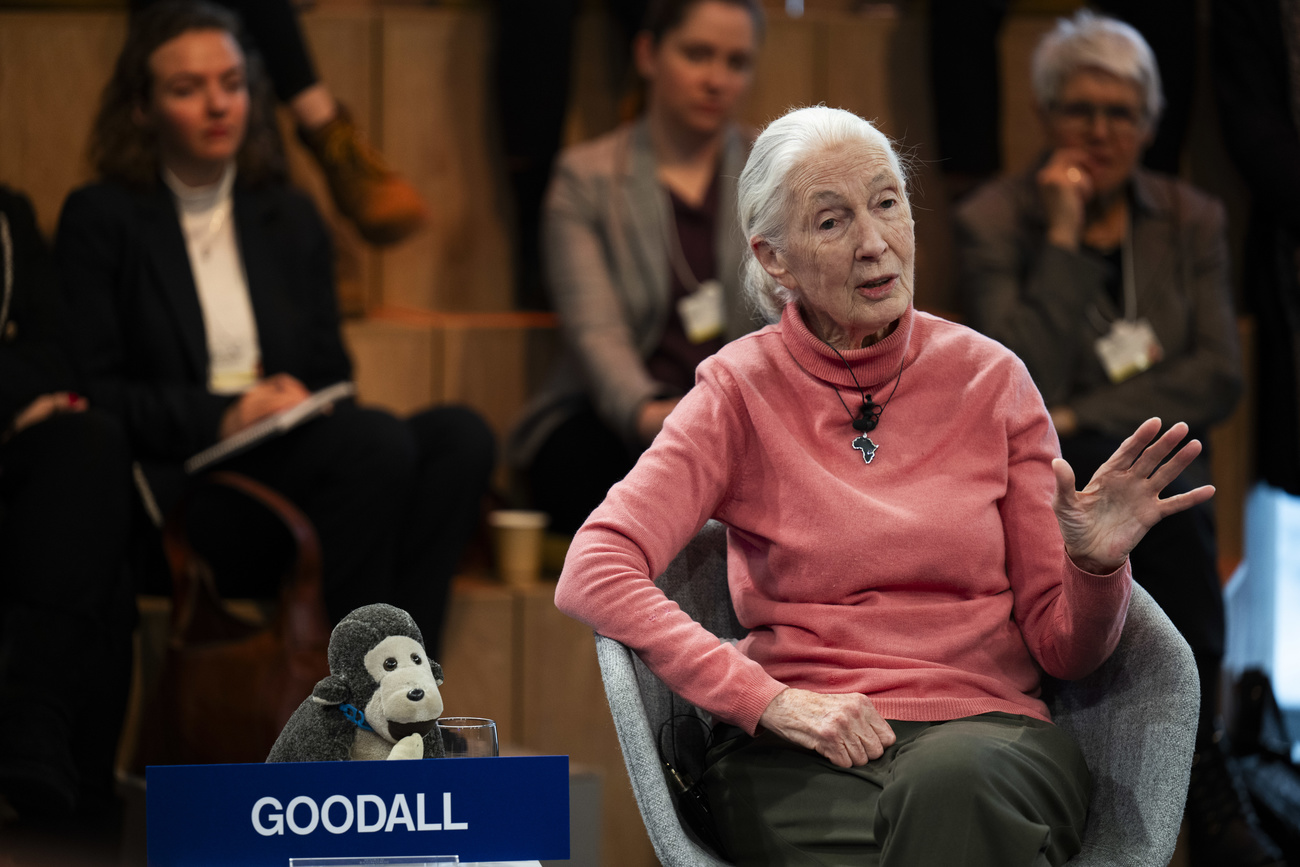
Artificial intelligence (AI) was another issue that rippled through Davos meeting rooms and panels, its promise touted on signs and its security risks invoked by China’s premier, Li Qiang. While conversations included how to regulate the burgeoning technology and how to apply it to scientific discovery, the question of how to monetise it persisted. “Everyone’s like, yeah, I can build these cool demos,” said Cloudflare CEO Matthew Prince, “but where’s the real value?”
The Tages-Anzeiger concluded that after five days at the WEF, what remains is the “impression of a fairground of random ideas and topics. The participants were looking for attention rather than exchange. It’s clear that the forum – even without genuine economic topics at the top of the agenda – is and remains a commercial event. Other expectations are simply too high.”
Edited by Marc Leutenegger
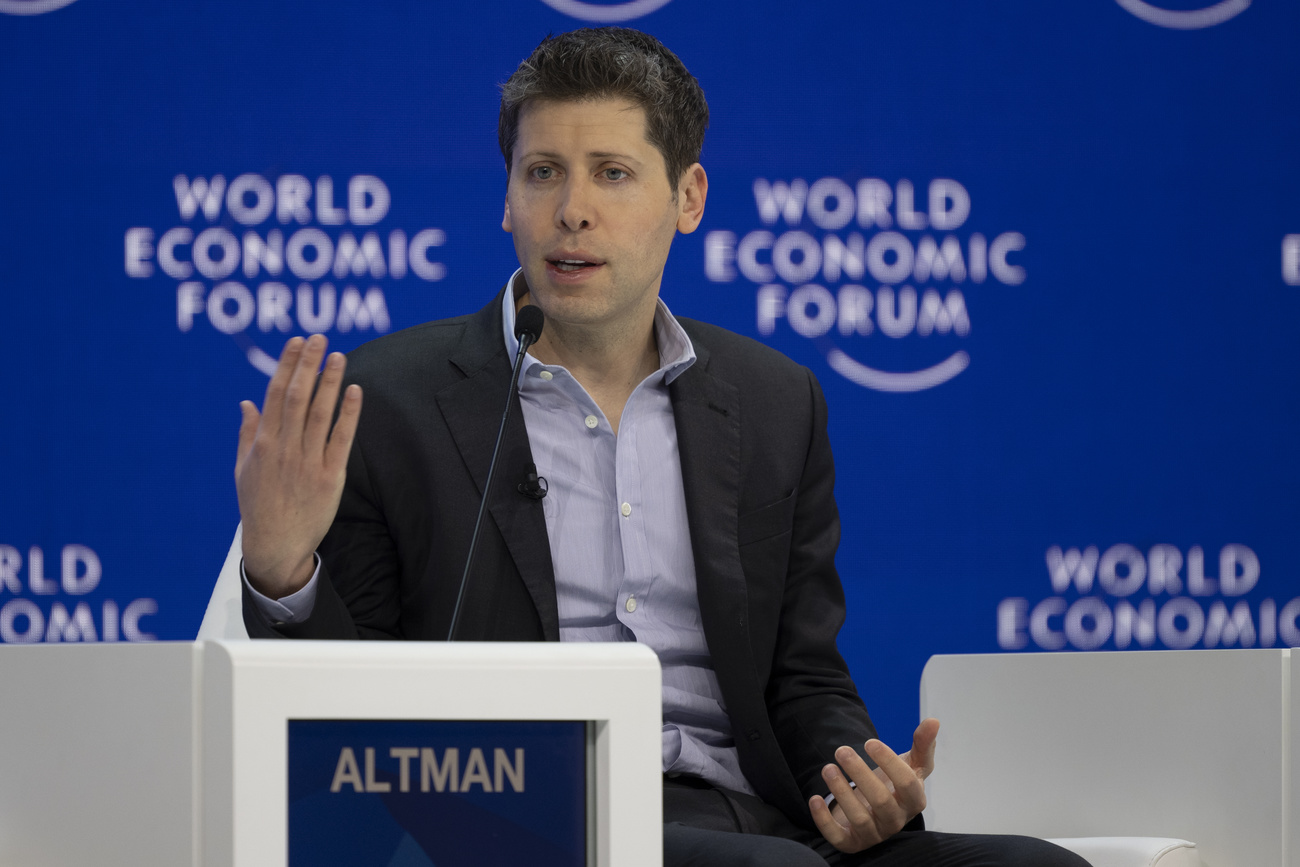
More
The numbers that shaped debate at WEF 2024

In compliance with the JTI standards
More: SWI swissinfo.ch certified by the Journalism Trust Initiative



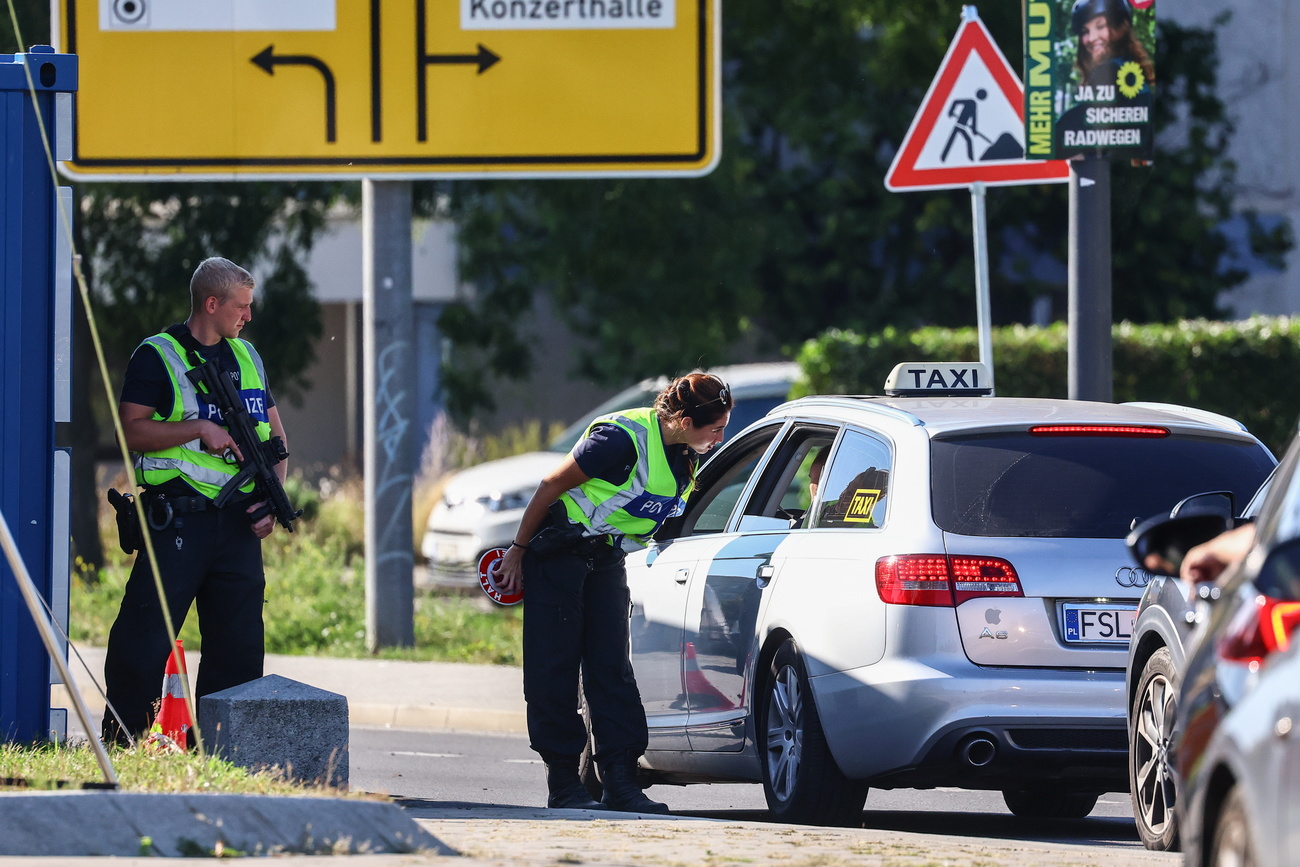
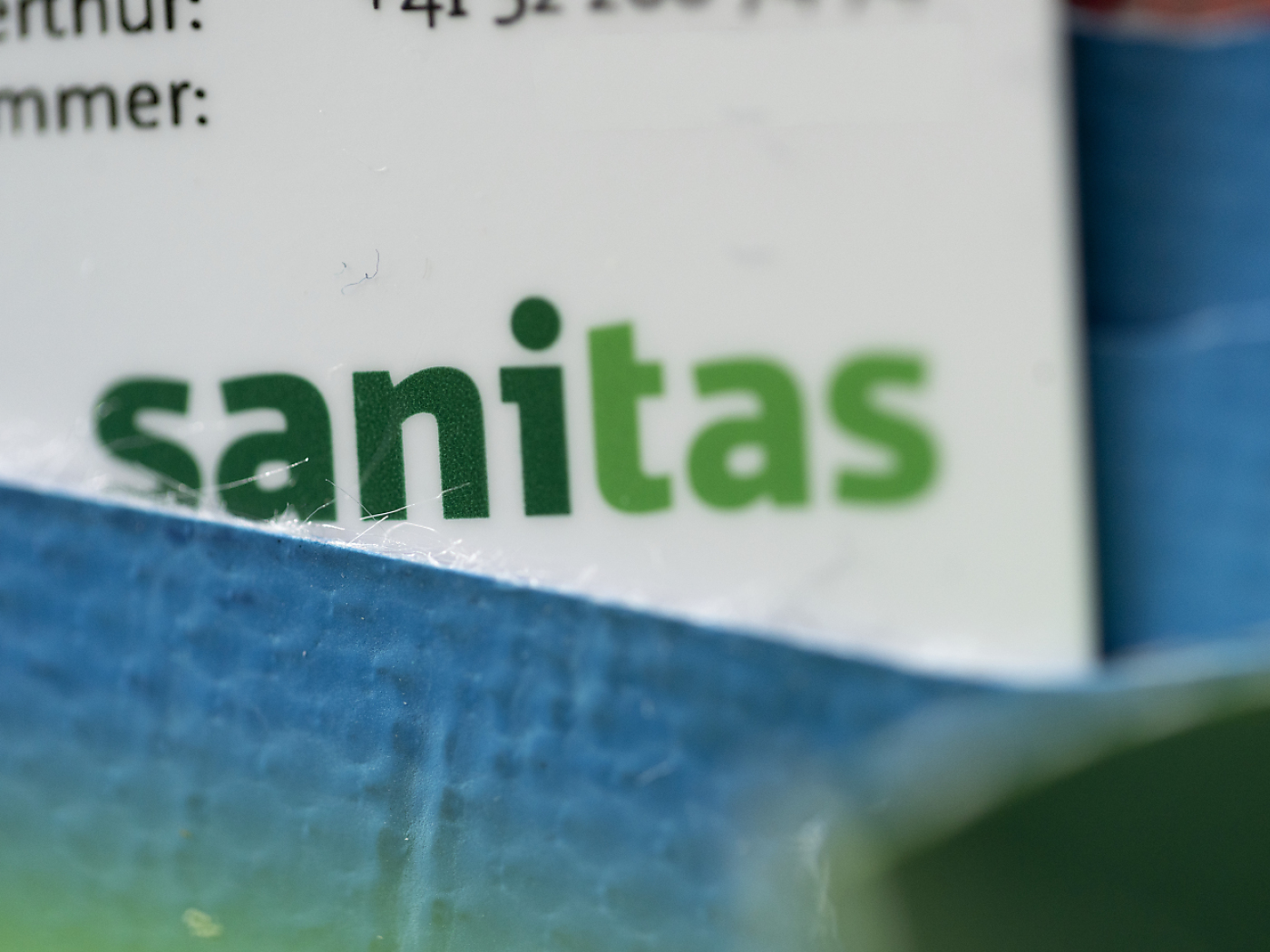
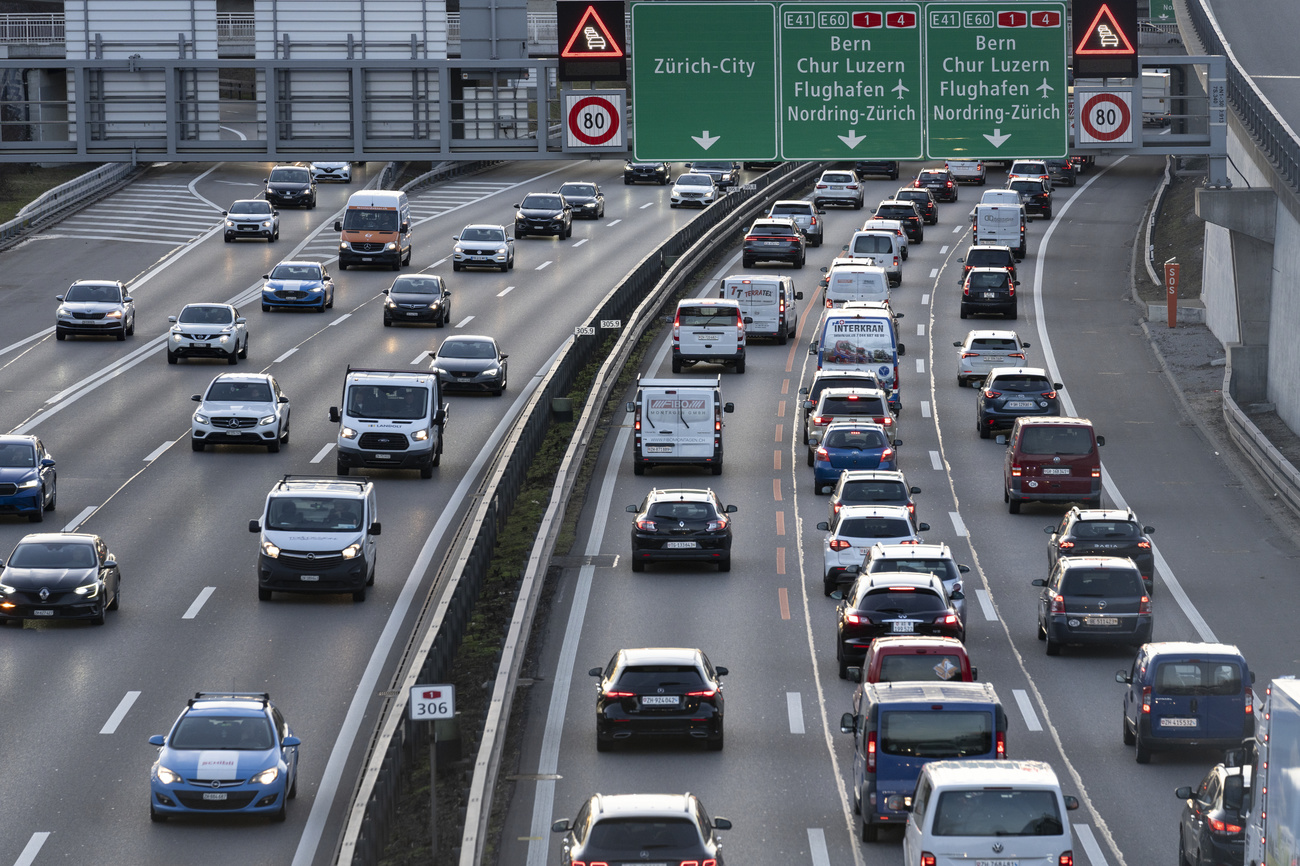



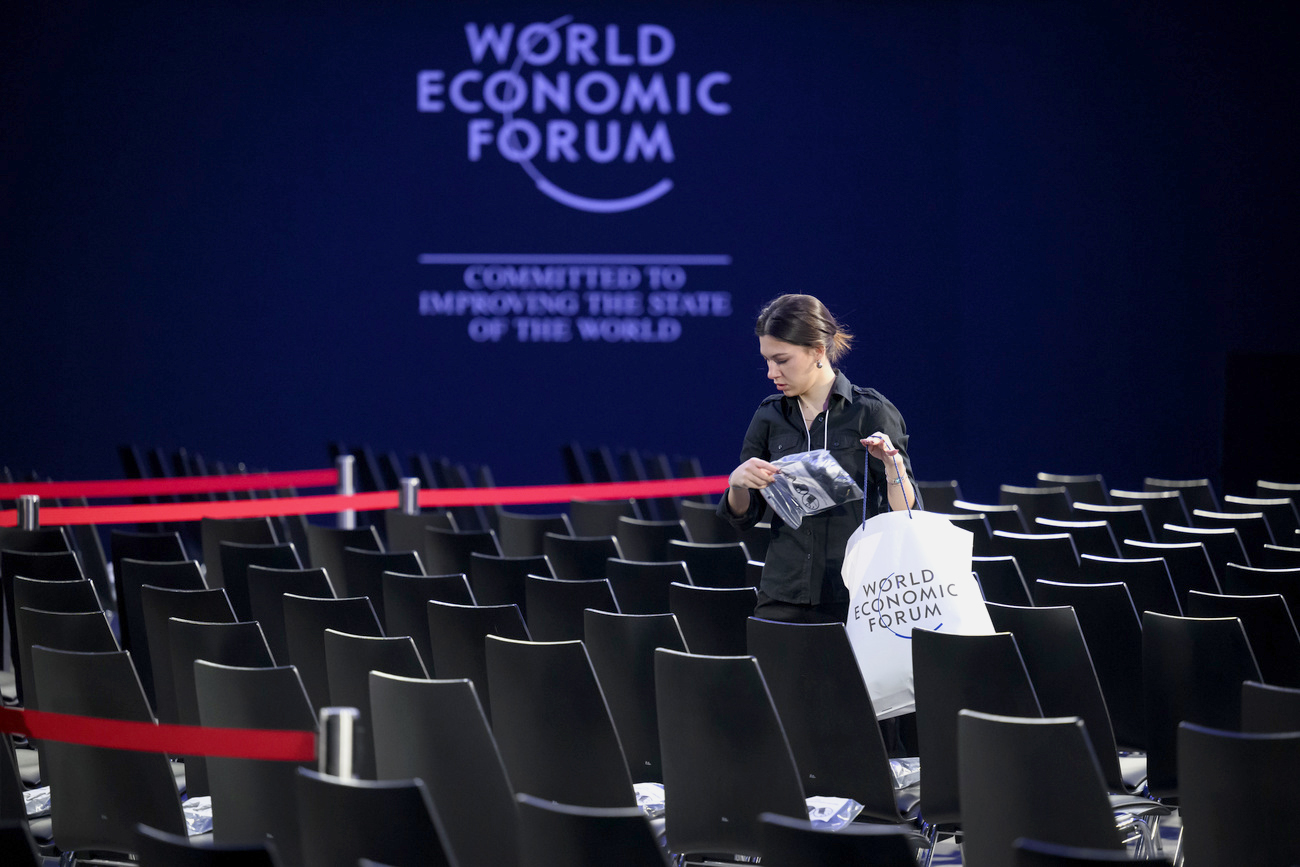
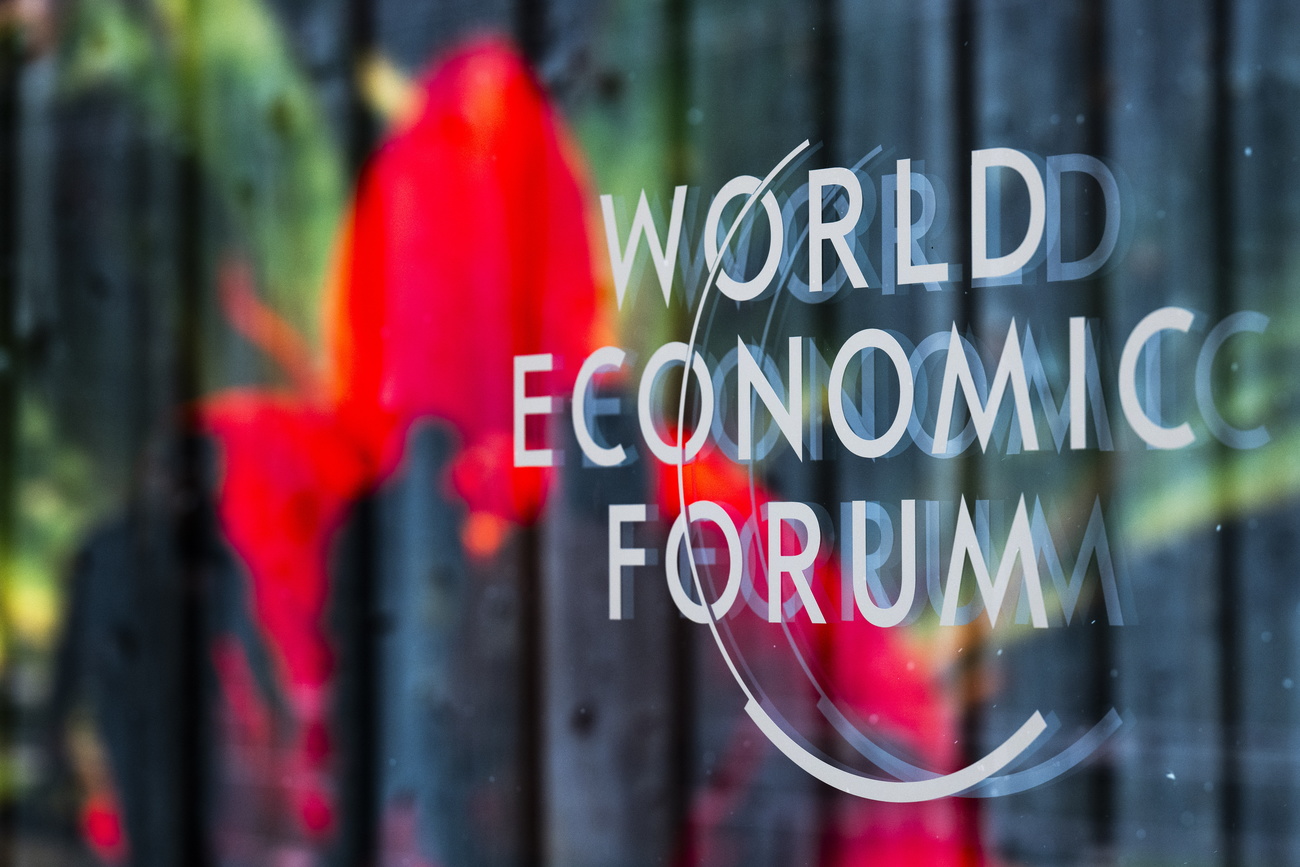
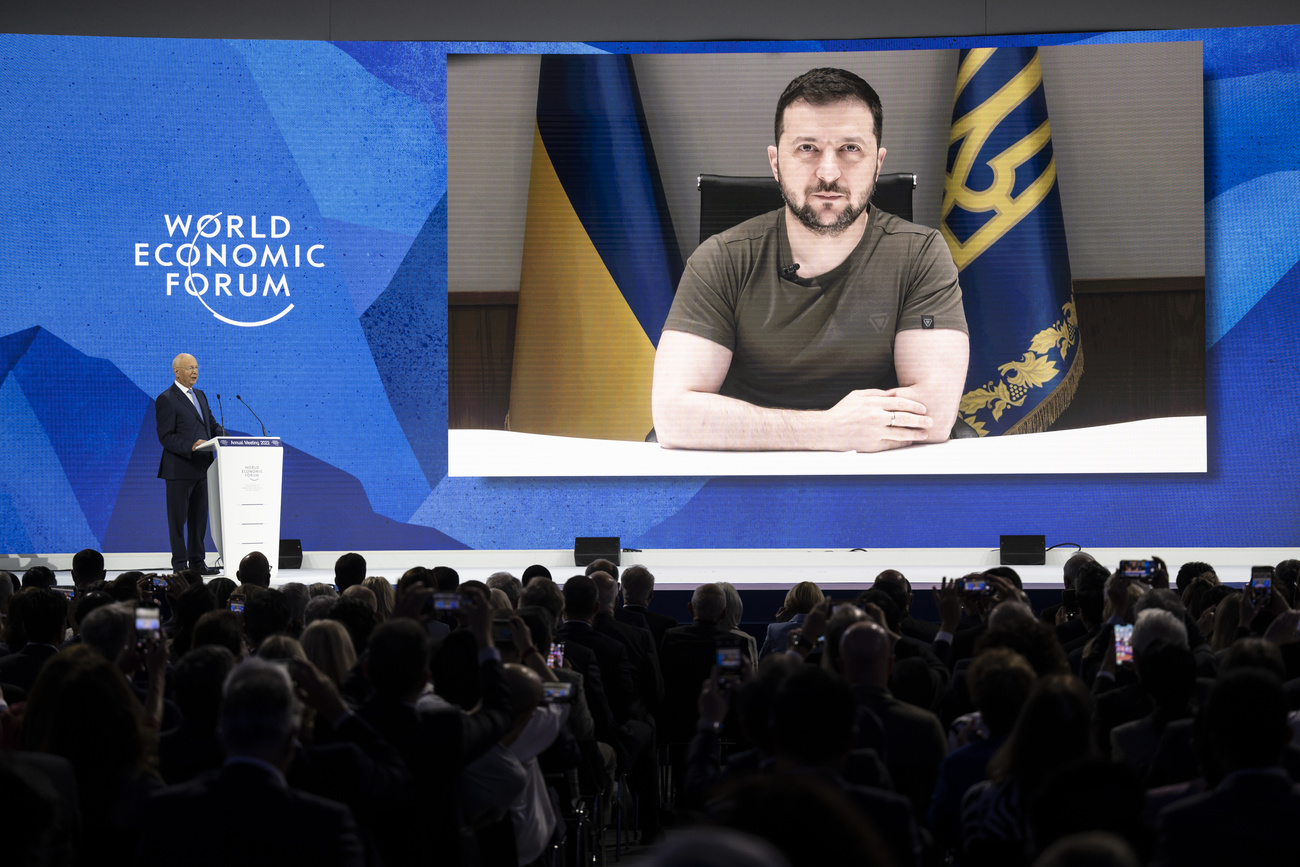

You can find an overview of ongoing debates with our journalists here . Please join us!
If you want to start a conversation about a topic raised in this article or want to report factual errors, email us at english@swissinfo.ch.